1: Peter Bossman
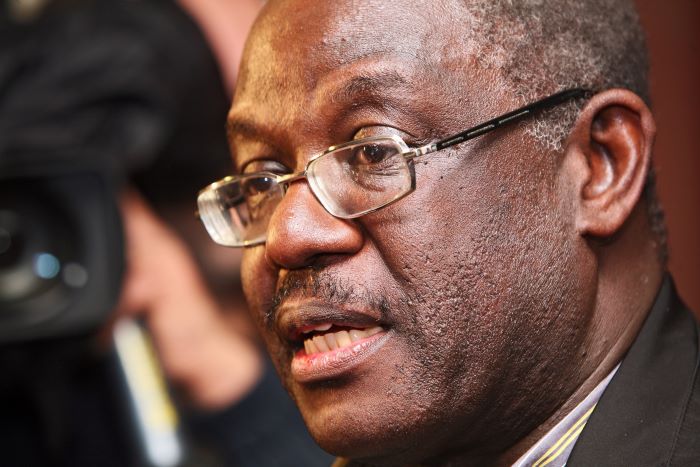
Peter Bossman is mayor of the Slovene town of Piran. A small town on Slovenia's Adriatic Coast, Piran's choice of Bossman for mayor is noteworthy as he's not just the first black mayor of Piran, or of any place in Slovenia. He was Eastern Europe's first black mayor anywhere.
What's perhaps more astonishing is that there are fewer than 250 African immigrants who have made Slovenia their home. Bossman was born in Ghana; he travelled through Europe while young as his father had helped open Ghanian embassies across the continent. He took up a place studying medicine in Yugoslavia after a coup in Ghana sent him into exile.
He had intended to return to Africa after completing his medical studies in Europe but, as often happens, love intervened. Peter met and married Karmen Laković, the couple settling in Piran.
His election attracted both international attention, and international comparisons - he took City Hall in 2010, just two years after Obama had won the White House. But Peter was quick to downplay the comparisons, telling CNN:
"I said that I'm flattered by the comparison, but I'm in no way Obama. I'm Peter Bossman, and I'm just running for mayor of a small town," he said.
Had he faced any racism during his rise to power? He didn't think so, reported the BBC in 2010:
"There are always small groups of people not accepting people who are different and in the first months after coming to Slovenia I felt that some people did not want to be with us," he said.
"But for the last 10 or 15 years, I experienced nothing like that any more. I have no problems at all and I think people no longer see the colour of my skin when they look at me," he added.
(In fact, he had received criticism during the campaign for what was described as his poor Slovene language skills.)
Peter Bossman was re-elected for a second four year term in 2014. He intends to return to medicine when his time as mayor ends.
2: Alice Bah Kuhnke
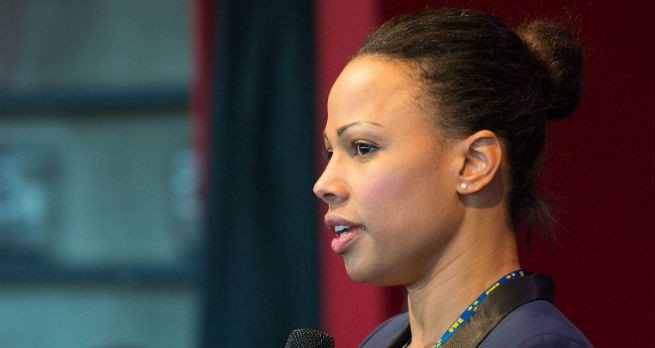
Meet Alice Bah Kuhnke, who between October 2014 and January 2019 was Sweden's first ever minister for Culture & Democracy. (Previously, the culture ministry had had no remit to encourage citizenship and participation.)
Alice was born in Malmo, but grew up in Småland, in the south of Sweden. At school, she excelled as a sprinter, but swapped sports for television. She worked for a while as children's TV presenter - she was the face of Sweden's local variant of Disney Club - but moved on to producing and presenting current affairs. She studied political science at Stockholm University, fitting her studies around media work and a role at Sweden's industrial giant Skandia. She also held positions of responsibility in the Church, and sat on the board of the Royal Dramatic Theatre and the Foundation All of Sweden - Performing Artists Against Nazis group.
Although her work often had political elements - working for think-tanks, leading Sweden's Youth and Civil Society agency - she wasn't a career politician; she only joined the ruling Green Party three days before her appointment. Many working in Sweden's cultural industries were delighted that the first minister for culture came from beyond politics. Daniel Birnbaum of the Museum of Modern Art told Swedish paper Dagens Nyheter:
"I am surprised since I have read the newspapers like everybody else and had expected a professional politician. But I am pleased they have dared to do something different, she is an exciting person that I hope a lot from. She is also a relatively young person which also feels exciting."
For Alice, there's a clear link between the two strands of the department she created:
“My most difficult task – and at the same time my most honourable task – is to work for the independence of cultural life. Art can only emerge and exist where there is freedom. Through clear culture policy in collaboration with other policy areas, I will work to provide more opportunities for cultural education and cultural participation.”
3: Igiaba Scego
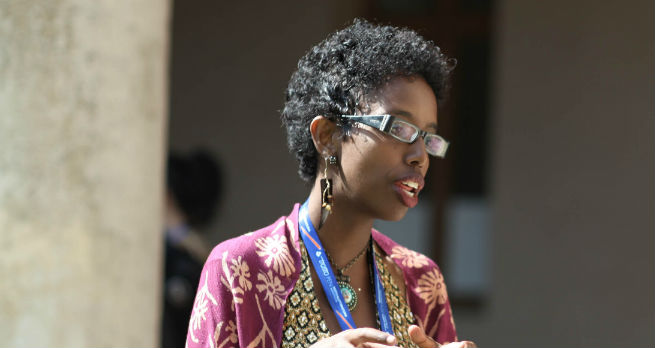
Meet Igiana Scego, an Italian writer who takes the theme of identity at the heart of her work.
Born in Rome to parents who had fled the Somalian coup of 1969, Igiaba grew up experiencing two cultures. One side brought her parents tales of a charmed life of status in Somalia; the other, the sometimes brutal experience of being a black Italian in 20th Century Rome. Her work isn't about otherness, though, but about claiming and expressing a sense of belonging.
An example of the power of her writing is the piece she wrote for Internaziole in the days following the Charlie Hebdo massacre in Paris:
Enough! We – and here I’m referring to myself, to Muslims and to everyone – must stop them using the name of Islam for their shady, disgusting affairs.
I would like every imam in every mosque in Europe to say this, loud and clear. I’m tired of seeing the name of a religion sullied in this way. It is not right. Similarly, as a citizen of the European Union, it is not right to see the vilification of its cornerstone values of peace and living together. I’m fed up of those who do not respect other people’s right to laugh. I’m sick and tired of seeing innocent blood being spilt every day, from Paris to Peshawar. And my stomach is already churning at the thought of the various xenophobes waiting in the wings. I already know someone will use this attack against immigrants and children of immigrants to grab a few more votes. There are always vultures who feast on tragedies.
4: Enith Brigitha
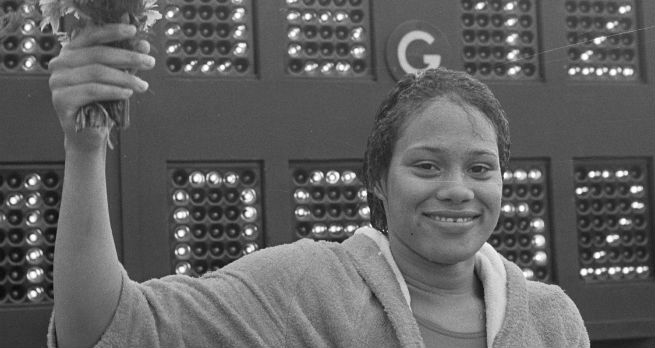
Enith Brigitha was the first black athlete to win a swimming medal at the Olympics. Born in Curaçao, a Dutch country in the West Indies, Brigita learned to swim in the Caribbean. She moved to the Netherlands when she was 15.
Brigitha's achievements in the pool are amazing - she represented the Netherlands in the Munich and Montreal Olympics; her last international medal - won in 1977 - was her 11th.
But what she actually did should be even more lauded - her Olympics bronzes saw her placed behind swimmers from the old East Germany, whose victories are now so widely known to have been achieved through state-enforced rule-breaking as to be discounted. In addition, her speeds in the pool at 25 metres were ignored as between 1954 and 1991 these distances weren't recorded.
It took many years for the swimming community to make good on the downplaying of Enith's role in swimming, but finally in 2015 she was given some of her due, with an induction into the International Swimming Hall of Fame.
Collecting her award, Enith stressed how both strands of her identity made her the success she became. Peter Jordens reported:
“I am very proud of my success,” she said after a video of her accomplishments was shown. “But I would also like to credit my success to my ancestors, especially my mother and grandmothers. They are my heroes in many respects. My grandmother with Dutch roots led her family through the difficult years of the Depression and World War II. She taught me to have optimism, dedication and tact.”
But her other, Curaçaoan grandmother was also important to her: “My grandmother with Afro-Curaçaoan roots felt slavery still nearby. She experienced poverty, deprivation and brutality. She gave me physical and emotional strength, self-confidence and courage.”
For a long time, the fastest woman in the pool; and the first black person to win Olympic swimming medals, today Enith passes her passion on through her own swimming school in Curaço.
5: Karim Guédé
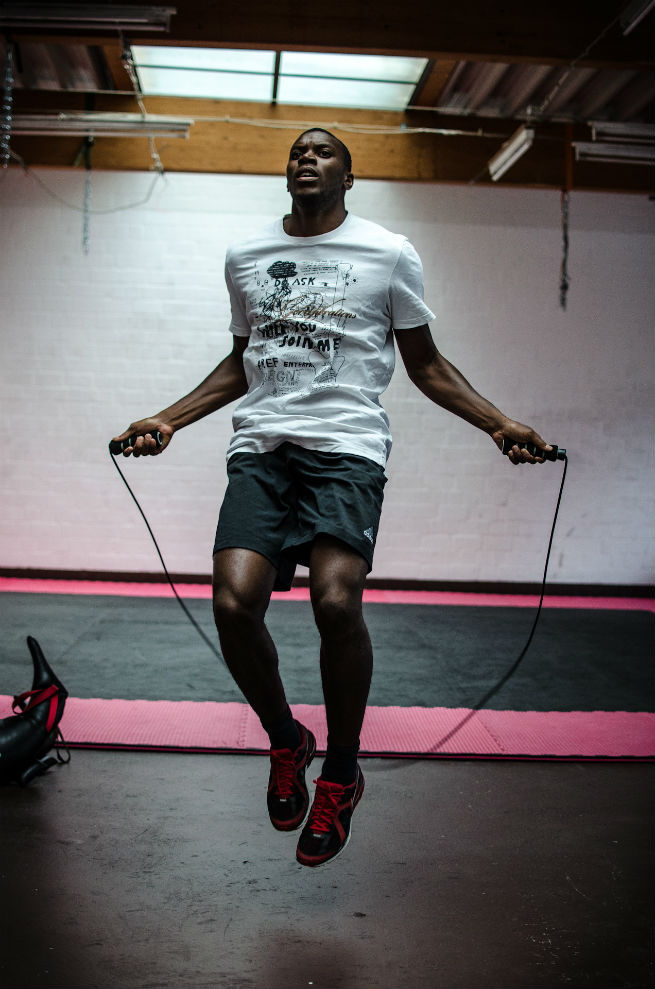
The record of Slovakian football fans on racism isn't great - it hit a notable low during the 2002 Slovkia v England European Championship qualifier, where racist chanting led to a battle between local fans, English fans and the Bratislavian police. In 2007 there was a spate of ugly incidents which included the unveiling of a banner celebrating the birthday of Adolf Hitler in the stands at a SK Slovan Bratislava match.
With a background like this, being the first African-born player to represent Slovakia becomes an even greater challenge. It's a challenge to which Karim Guédé rose.
Guédé was born in Hamburg, and has been playing in the Slovakian leagues since 2006. He took Slovakian citizenship in 2011, enabling him to qualify for the national team. He had very nearly played for Togo - his father's birthplace - during the 2006 World Cup, but an injury kept him out the team. (Under FIFA rules this would have made him ineligible to play for his new home nation. We all know what sticklers FIFA are for rules.)
He made his international debut against Austria in 2011, and continued to be a regular member of the Slovakia squad, winning 14 caps.
He then moved at a club level back to Germany, playing for FC Freiburg. He didn't have the smoothest of playing careers, and attracted some criticism from fans and commentators, but he rose above it with a personal philosophy that there are no hopeless situations. "I know I'm not Ronaldo, who has to score in every game," he explains.
And it's not surprising that Karim should be so firm during times when his on-pitch form might have been challenging. He's dealt with much worse. Three days after the Hitler incident in 2007, he was the target of vile, sustained racist abuse from the stands. To face that sort of hatred down, and to reach the national team, shows a strength of spirit that is remarkable.
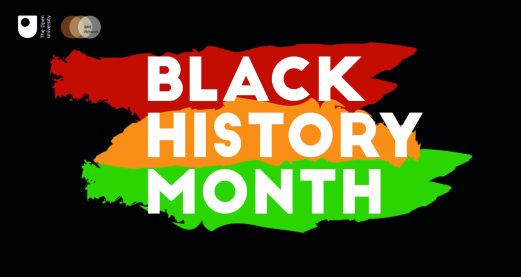





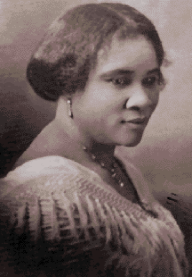






Rate and Review
Rate this article
Review this article
Log into OpenLearn to leave reviews and join in the conversation.
Article reviews